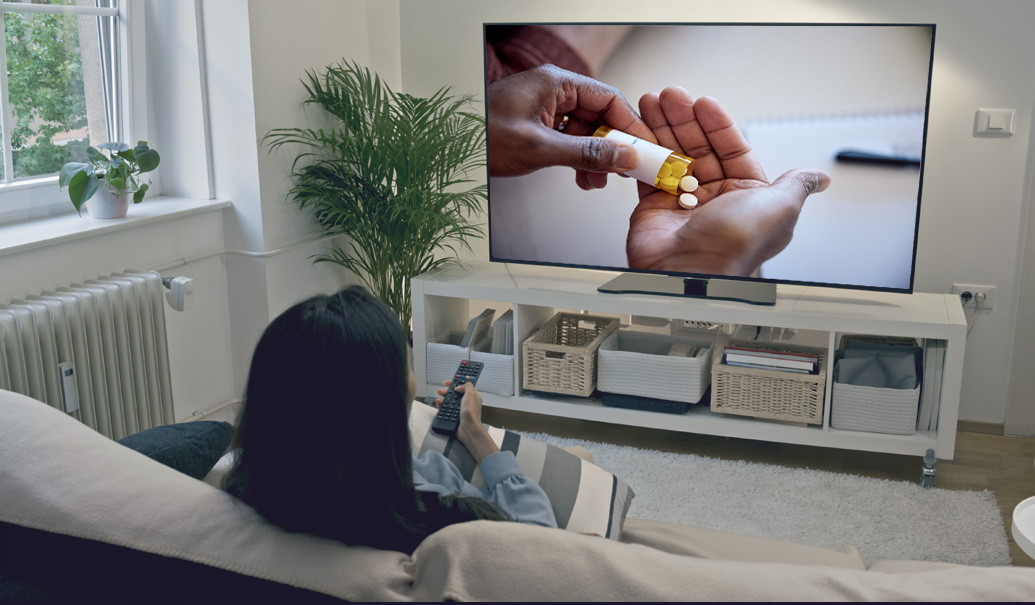Even before the global pandemic, the pharmaceutical industry had implemented new strategies and data-driven decisions to become more customer-centric. Exponential growth in the pharma industry has led to an increase in the availability of new and complex information that has been difficult to attain. Although key opinion leaders (KOLs) can now find information tailored to their interests from many sources, what they need are unbiased partners to educate and help them review best-in-class scientific information. That’s where medical affairs teams come in.
Medical science liaisons serve as unbiased scientific partners
Since its inception, the use of medical affairs expertise has significantly increased. The experts largely consist of medical science liaisons (MSLs) who liaise with KOLs as their unbiased, scientific partners. They also help pharma companies understand the unmet needs of these stakeholders, thereby enabling refinement of strategies. According to the benchmarks developed by the ZS medical affairs team, KOLs value their engagements with MSLs: Prior to the pandemic, engagements between KOLs and MSLs were predominantly face-to-face, lasting for an average of 30 minutes each—far longer than engagements with sales reps. During the pandemic, these engagements shifted predominantly to virtual; despite this big disruption, some of these engagements lasted for even an hour. This firmly establishes the important role that MSLs continue to play.
The following key benchmark findings support this theory:
- Eighty-nine percent of KOLs take action after interacting with an MSL.
- Forty-three percent of KOLs share the information they receive with their peers.
- About a third of the KOLs pursue research opportunities with the organization.
- Thirty-seven percent of KOLs almost always request a follow-up visit for additional information, a statistic that has remained consistent over the last five years.
- Almost 25% of KOLs introduce their MSLs to other KOLs in their practice, signifying a growing need for MSLs.
Three-pillar framework of customer-centricity
Following a rigorous data-driven approach, the ZS medical affairs team has identified three key pillars for a customer-centric framework. These pillars help understand the evolving stakeholder needs and the breakdown of what KOLs consider important. The three pillars for a customer service framework include scientific acumen, responsiveness, and communication and collaboration (figure 1).
1. Scientific acumen: The scientific expertise of MSLs serve as a key element that drives customer-centric discussions with a KOL, making it the first pillar for the framework. Typical topics vary according to the KOL’s needs and interests, product lifecycle, emerging trends, latest data releases and other factors. The pandemic further shed light on the need for scientific expertise on additional topics that KOLs lack, such as information on drug interactions between COVID-19 and ongoing medications. MSLs possess this type of scientific acumen, bringing a different perspective of the data to KOLs. That said, while KOL interactions are important, MSLs should also focus on interacting with nurse practitioners, physician assistants and other healthcare professionals.
In its research, the ZS medical affairs team found that:
- Eighty-eight percent of KOLs value MSLs as a reliable source of scientific information.
- Eighty-four percent of KOLs find it important that MSLs are knowledgeable about their company’s clinical trials.
- More than two-thirds (70%) of KOLs considered discussions on product-specific information to be very important, a figure remaining broadly consistent between 2016 and 2019.
- Nearly three-fourths (74%) of KOLs attach high importance to discussions on journal articles and results from clinical studies.
- The number of KOLs who value healthcare industry discussions with MSLs rose from 57% in 2017 to 65% in 2019.
- Although KOLs with fewer than 19 years of experience often value healthcare discussions more than KOLs with more than 19 years of experience, both segments valued these discussions about the same (65%) in 2019, meaning the number of KOLs who value the MSL’s knowledge about the industry continues to grow.
Additionally, the KOLs who consider health economics and outcomes research and value data to be very important increased by 13% from 2017 to 2019. This spike can be attributed to the growing role of MSLs in driving value-based discussions with KOLs and the need for unbiased health economics information.
The data above shows customer-centric discussions evolving according to KOL needs. As a result, MSLs should tailor their discussions while also keeping their own objectives in mind, such as establishing and maintaining relationships with KOLs, providing clinical trial support, and sharing evidence to decision-makers and physicians. In doing so, MSLs could see their roles expand into other areas besides KOL interactions, such as increased trial support, trial recruitment and patient-advocacy engagements.
2. Responsiveness: In order to be successful, MSLs must build relationships with KOLs, setting the ground for a long-lasting impact for their own organization. Responsiveness is key here, making it the second pillar for the customer-centric framework. The sudden shift to virtual engagements this year has been most successful in places where MSLs had already established scientific relationships with KOLs. Therefore, as we move toward a hybrid engagement scenario in the future, the depth of scientific relationships will play a key role in ensuring sustained engagements with KOLs.
In its research, the ZS medical affairs team found that:
- Eighty percent of KOLs felt MSLs should be reliable, responsive and accessible resources for scientific information.
- Three-fourths of KOLs also consider it very important for MSLs to effectively listen and understand their perspectives, needs and interests, as well as tailor the discussion accordingly.
- Two-thirds of KOLs consider it very important for MSLs to quickly connect them to their organization’s resources and opportunities, such as other stakeholders and programs.
- Every year since 2017, almost 65% KOLs mentioned they consider it very important for MSLs to provide updates from recent congresses or conferences.
- More than half (54%) of KOLs cite serving as a point of contact for scientific engagements with the company—such as connects to other stakeholders, resources and programs—as an important activity. With the growing need for information, KOLs consider it very important for MSLs to follow through on commitments and requests in a timely manner.
3. Communication and collaboration: MSL training programs should emphasize the need for a strong customer-oriented mindset and open communication among MSL teams and leadership.
In its research, the ZS medical affairs team found that:
- More than three-fourths (79%) of KOLs mentioned the importance of MSLs earning their trust and that of their colleagues, based on prior interactions and unbiased discussions.
- Eighty-seven percent of KOLs want MSLs to be effective in their communication in a fair and balanced manner, as well as provide clear and concise answers in a non-defensive manner. The percentage of KOLs who considered this to be very important increased by 9% between 2018 and 2019.
- Seventy-nine percent of KOLs prefer MSLs to be respectful of their time.
- Three-fourths of KOLs want MSLs to avoid speculating if they don’t know the answer to a question.
- Nearly two-thirds (63%) of KOLs feel MSLs should act as liaisons for research opportunities.
- Between 2016 and 2018, the number of KOLs who considered it very important for MSLs to match and leverage their knowledge and interests with those of the pharma company rose by 29%.
- From 2016 to 2019, almost 70% of KOLs consistently cited MSLs should be customer-service oriented by addressing their specific needs and preferences.
The lack of face-to-face interactions due to the pandemic has increased the need for communication and collaboration. During the past six to eight months, MSL teams and leadership have experimented with different engagement tactics—such as shorter and more focused virtual discussions—to enable efficient dissemination of scientific information and effective coverage of a desired topic. Such tactics will help KOLs transition smoothly and effectively to the new normal that will come with communicating and collaborating.
“Moving forward, the definition of customer-centricity will further evolve as traditional MSL and KOL relationships continue to develop further.”
The medical affairs experience and expertise used to define the three-pillar customer-centric framework came from data derived from more than 100 medical affairs clients and 60 customer-oriented studies. These studies provide an extensive overview of evolving medical engagement dynamics, emerging medical roles, the triggers driving these changes and growing customer needs. The findings illustrate that the KOLs see MSLs as their true scientific partners critical to gathering the data they need to make key decisions and be scientifically well equipped. Moving forward, the definition of customer-centricity will further evolve as traditional MSL and KOL relationships continue to develop further. This will form the crux for developing and building scientific engagement plans to cater to the next wave of changes in the pharma industry.
Sunil John, a principal in the Pune office, co-leads ZS’s global medical affairs practice.
Add insights to your inbox
We’ll send you content you’ll want to read – and put to use.















